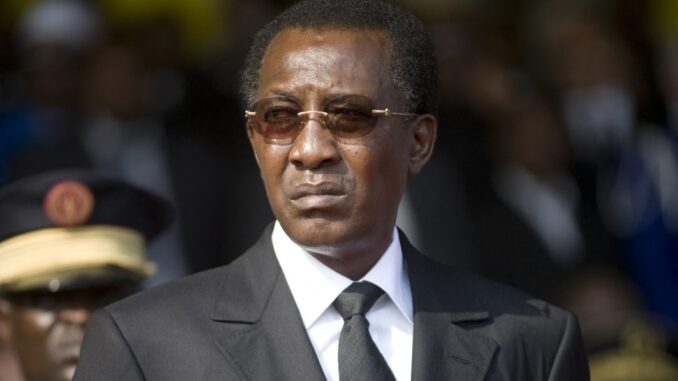
Nigeria should have more than a passing interest at events unfolding in Chad since the demise of Idriss Déby Itno. In his imperfection, Déby was a strategic ally that secured his flank against invaders and regional threats for about three decades. Unconstitutional succession by his son and brewing tension from rebels and oppositions stand to upset the dynamics of resistance and put the beleaguered Sahel region more at risk of insufferable terrorists groups. Nigeria already has its overwhelming problems, but to overlook Déby’s Chad will be shortsighted.
Boko Haram terrorism assuming a regional threat and an albatross for the Sahel region has prompted joint forces from Cameroun, Chad, Niger and Nigeria battling the jihadists across the international borderline. Deby has been exceptional in the regional warfare against jihadists and rebel groups. His lot had been to repel Boko Haram onslaughts from Niger and Nigeria. The country has been a linchpin of the struggle in the Lake Chad basin – where it intervened after 2014 at the request of its Nigerian and Camerounian neighbours to fight against Boko Haram factions – and in the Sahel region. He played a prominent role in the G5 Sahel, a regional organisation set up in 2014 for security and development cooperation.
On national Election Day last month, attacks by Front for Change and Unity in Chad (FACT), a Chadian military-political rebel group based in Libya, pushed deeper into Chad, advancing territories north of Mao just 300km off N’Djamena. French forces decided not to get involved this time. Chadian national army’s pushback recorded heavy casualties on both sides, with Déby and some senior officers sustaining fatal injuries. Another version of events suggested a gunfight after failed negotiations with FACT members. His death was announced in a national broadcast just a few hours after he was declared winner of the April 11 flawed presidential poll – his sixth consecutive election.
The strong leader was not unused to the battle front. He took power in 1990 in a coup d’état that deposed President Hissène Habré, for whom he had served as head of the army, and he consistently used his military credentials to buttress his political power. He was most frequent on frontlines. In April 2020 for example, he led a counter-offensive against a Boko Haram faction that had just killed nearly 100 Chadian soldiers on the shores of Lake Chad. He was perhaps the last of the tradition Commanders-in-Chief that led troops from the front. Déby’s presence on the ground allowed him to mobilise and motivate his troops, and to present himself as guarantor of the nation’s security. He directly connected with his soldiers and their fights were his too. His was an arrangement that left nothing to chance, including in-house sabotage and low morale among soldiers.
Déby was not known for democratic or developmental credentials, which is a cause for worry to today’s Chad. For 30 years that he led the oil-rich nation, he fought terrorists as hard as he cracked down on opponents, protesters and even the press. The capital was a seat of daily battles with protesters. In the build up to the last election, public dissenters risked it all with the police. Reports had it that several persons were killed or injured following Déby’s decision to contest for sixth-term. His was a repressive regime for as long as it lasted. And that legacy has survived with the imposition of his son as the next president. Shortly after his death was announced, the government and parliament were immediately dissolved and a military council led by 37-year-old Mahamat Idriss Déby took charge of affairs.
But for the subversion, the constitution calls for the head of the National Assembly to take over and to hold elections within 90-days. The imposition of Déby junior and his plan to rule for 18 months until a fresh election is conducted, has been described by the opposition as a coup to further unsettle Chad. A section of the public has vowed to resist the military, adding to the list of oppositions to Chad becoming a family business.
Already, Chad is volatile and tethering on the cliff. Civil oppositions are threatening to take to the streets in protest in the coming days. A number of rebel groups from the North, Eastern part of the country and Libya, who claimed to be fighting for Chadian democracy, are closing ranks to seize the capital in protest against leadership illegitimacy. The army is also divided by the “military coup d’état” and transition irregularities. Yet, insecurity within as well as in the region is already bad. It could be worse from implosion and civil war in Chad. The United States has rightly called for transition in accordance with the Chadian constitution. This is in contrast with France that has warily spoken to the need to “establish an inclusive, civilian government” after a “limited period.”
Nigeria should at this time pull its weight than just issue a condolence message. All parties, especially Nigeria, cannot continue to overlook a militarised Chad over the importance of democratic values and good governance to strategically turn off the internal heat. A peaceful transition, armed with common ground between the military council and its opponents is all important now. Allowing Chad’s armed struggle to disintegrate into full blown crisis under Mahamat Idriss Déby will force its troops engaging Boko Haram in Burkina Faso, Mali and Niger to retreat to combat insurrection at home. But letting off steam on terrorist groups abroad will have dire implications for security and stability in the entire region.
END

Be the first to comment